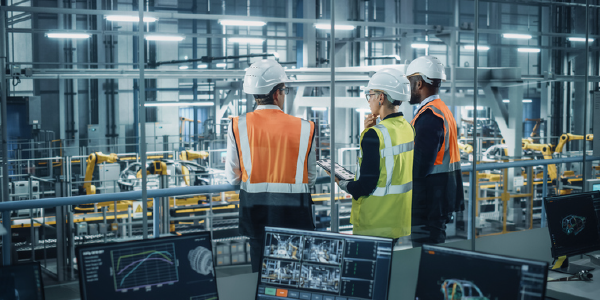
This summer, the Department of Labor joined the Biden-Harris administration’s Talent Pipeline Challenge with other federal agencies. This is a nationwide call to action for employers, unions, education and training providers, and several other groups to support equitable workforce development in the broadband, construction and electrification industries.
This challenge is part of a multifaceted approach to advance the workforce development goals of the Bipartisan Infrastructure Law, the Inflation Reduction Act and the CHIPS and Science Act. This historic legislation will create thousands of new jobs in clean energy, battery manufacturing, electric vehicle charging infrastructure and many other similar fields.
Diversifying and expanding Registered Apprenticeship programs in infrastructure-related jobs is essential to training workers for up-and-coming industries that will rebuild America’s roads, bridges, ports and airports, and upgrade public transit and rail systems. These jobs will help replace lead pipes to provide clean water, clean up pollution, make affordable, high-speed internet more accessible to every family in America, deliver cheaper and cleaner energy, create good-paying jobs, and help build a clean energy economy.
On Sept. 23, 2022, the department announced an upcoming $80 million competition to support training for good jobs in eligible infrastructure sectors during the Talent Pipeline Challenge. The department will also uplift a new Training and Employment Notice to help infrastructure project leads and other stakeholders implement the Bipartisan Infrastructure Law with strong workforce commitments and proven strategies that produce high-quality education, training and employment opportunities for all workers.
We’re also collaborating with the Department of Energy on the Battery Workforce Initiative to work with industry participants and labor unions to identify shared workforce needs and develop national training standards and curricular material. This initiative will support development of a skilled, diverse and qualified workforce for the rapidly expanding U.S. battery manufacturing industry.
The Talent Pipeline Challenge also supports the department's Good Jobs Initiative by engaging employers to help them improve job quality, so industry can attract and retain the talent it needs. The department is also engaging directly with workers – making sure they have the information they need to exercise their rights, find good jobs and get in-demand skills in the broadband, construction and electrification industries.
Through the Talent Pipeline Challenge, more than 350 organizations in 50 states and territories have made tangible commitments, and nearly 150 employers, unions and community-based organizations will create or expand pre-apprenticeships, Registered Apprenticeships, and other high-quality training programs. Visit Apprenticeship.gov to learn more about infrastructure-related apprenticeship programs.
Brent Parton is the U.S. Department of Labor’s acting assistant secretary for employment and training.

 U.S. Department of Labor Blog
U.S. Department of Labor Blog